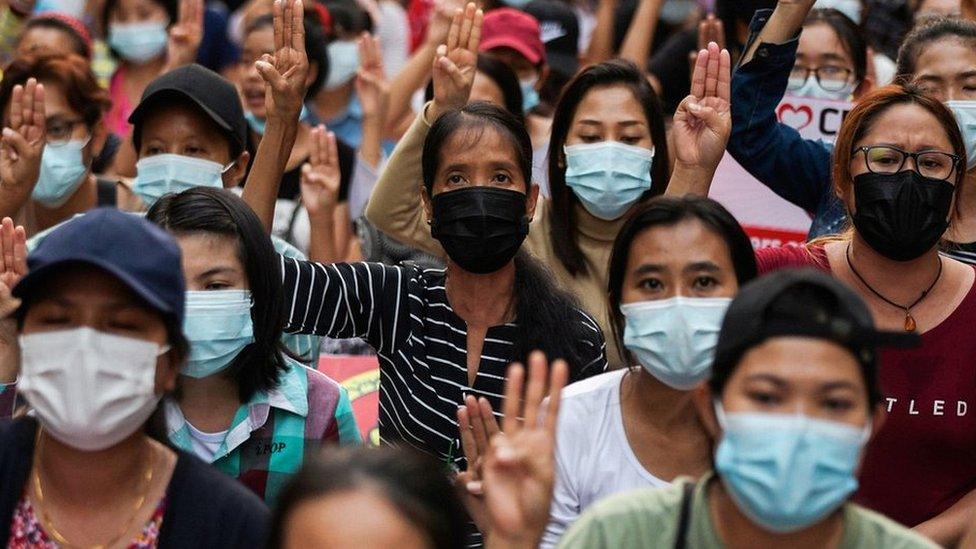Myanmar coup: Teachers join growing protests against military
- Published
"We wish them to fall": Teachers in the city of Yangon have joined protests against Monday's military coup
A civil disobedience movement in Myanmar is gaining momentum, with teachers and students protesting against Monday's military coup.
Demonstrators at a university in the biggest city, Yangon, chanted support for jailed leader Aung San Suu Kyi and wore red ribbons, her party's colour.
Ms Suu Kyi and other leaders have been held since the coup on Monday.
Earlier, the military detained another senior leader from her National League for Democracy (NLD) party.
Ms Suu Kyi, who has not been seen in public since Monday, is under house arrest, according to her lawyer. He said he was seeking her unconditional release and that of the president, who was also detained, but he had been unable to meet them.
Myanmar, which is also known as Burma, has remained mostly calm in the aftermath of the coup, which has plunged the South East Asian country into uncertainty.
On Friday afternoon, hundreds of teachers and students gathered outside Dagon University in Yangon, where they displayed the three-finger salute - a sign that has been adopted by protesters in the region to show their opposition to authoritarian rule.
They chanted their support for Ms Suu Kyi and carried red flags.
"We will not let our generation suffer under this kind of military dictatorship," Min Sithu, a student, told the AFP news agency.

Social media focus for protests
By Nyein Chan, BBC Burmese, Yangon
The first reaction to the coup was shock and horror. But now people have had time to digest what is happening and are finding different ways to fight back.
As the regime takes more steps to tighten its control, an increasing number of people are joining the leaderless civil disobedience campaign demanding a return of the democratically elected government.
The military has blocked the most popular social media platform, Facebook, but most people are still able to access it using virtual private networks - VPNs - and that's where lots of the protests are taking place.
People here know very well the violent crackdowns the military is capable of, so that's why for now there are no widespread street protests. But there are other ways people can make their voices heard.
The lecturers who took part in Friday's campus protests said they were doing it for the next generation.
I have an 18-month-old child. I grew up under military rule and the economic sanctions that came as a result of it. I prayed that my son would grow up in a very different Burma. Now I am not so sure what his future will be like.

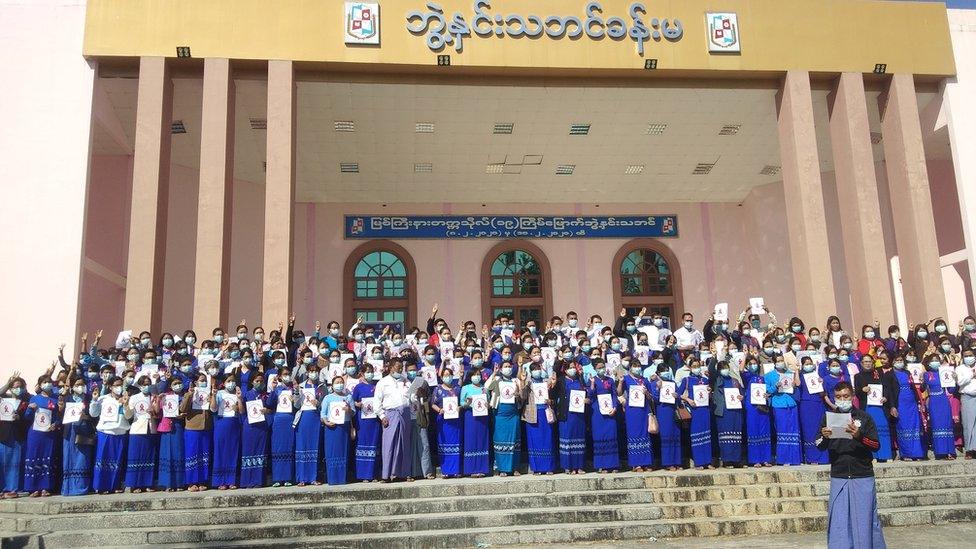
University teachers have joined the protests elsewhere in the country, like here in Kachin state...
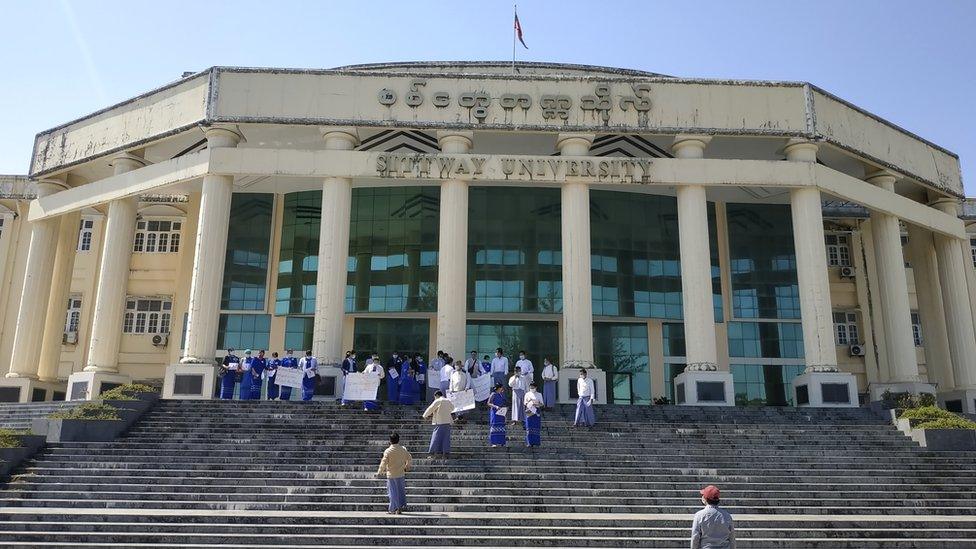
...or here in Sittwe, Rakhine state
There have been a number of demonstrations in different parts of Myanmar - the first large-scale street protests seen in the country since the coup.
Residents in some cities, including Yangon, have conducted nightly protests from their homes, banging pots and pans and singing revolutionary songs. There have also been daytime flash mobs.
About 70 MPs are said to have held an insurgent parliament, to replicate the parliamentary session that was supposed to take place this week.
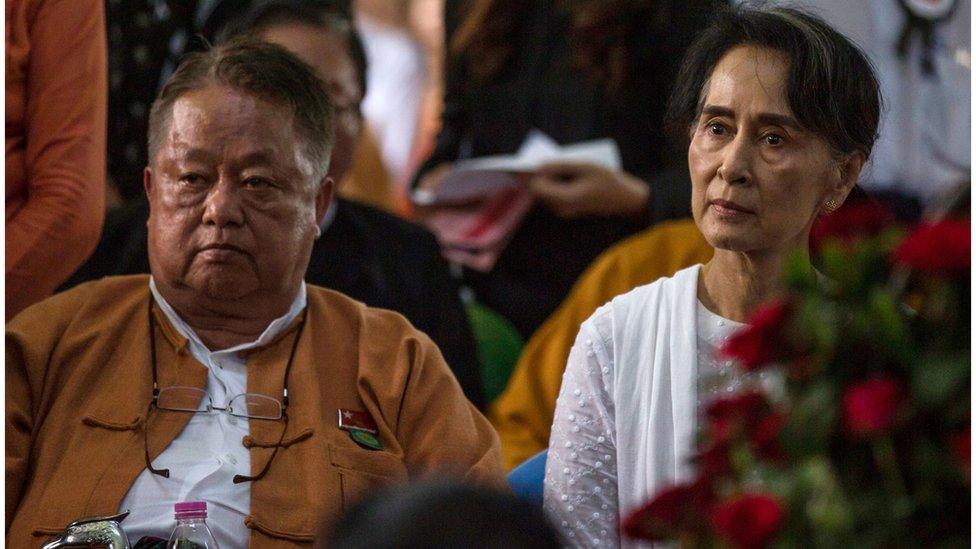
Win Htein (left) is a senior leader in the National League for Democracy led by Aung San Suu Kyi (right)
In a pre-dawn phone call with BBC Burmese, Win Htein, a 79-year-old patron of the NLD and strong supporter of Ms Suu Kyi, said he was being taken to the capital, Nay Pyi Taw, by members of the police and the military.
He said he was being detained under sedition laws - which carry a maximum punishment of life imprisonment - although he was not told the exact charge.
"They don't like what I've been talking about. They are afraid of what I'm saying," he said.
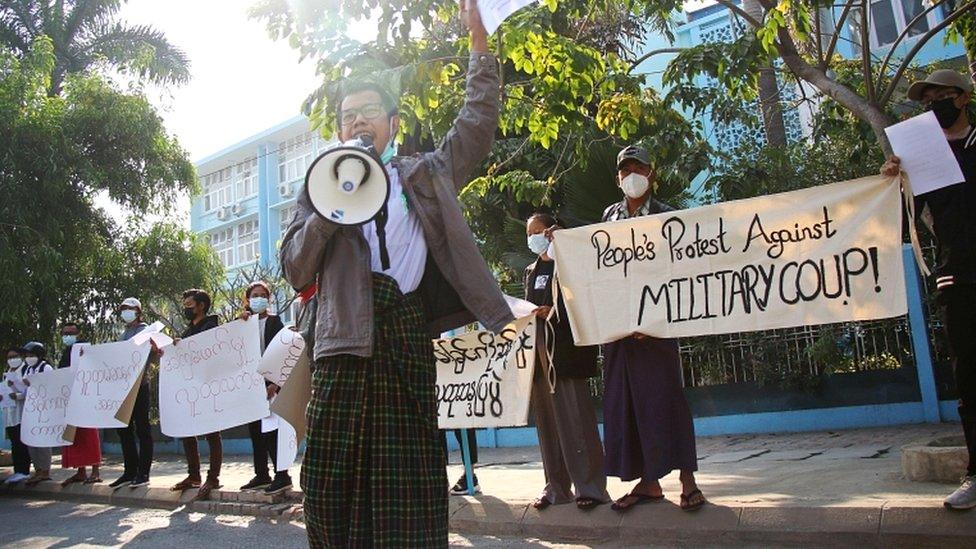
There was a small protest in front of a university in Mandalay, the country's second city, on Thursday
Many have also gone online to protest against the coup, but the military has now extended its temporary ban on Facebook to cover Twitter and Instagram too.
Twitter declined to comment when asked by the BBC if it had seen a spike in new users or tweets from Myanmar.
The military overthrew Ms Suu Kyi's government after it claimed a November election won by the NLD was fraudulent, though the country's election commission said there was no evidence to back up these allegations.
The move has been met with global outrage. On Thursday, US President Joe Biden called on the military to "relinquish power", external and release detained officials and activists. The US had already threatened severe sanctions on Myanmar.
However, the military is seemingly undeterred, continuing down its path of consolidating power and appointing new ministers, says the BBC's South East Asia correspondent Jonathan Head.
The UN Security Council also called on the military authorities in Myanmar to release Ms Suu Kyi and other detained leaders - but stopped short of condemning the coup.
In doing so, it has brought China and Russia behind a call for her release, in what our correspondent has described as a rare show of international unity.

Myanmar at a glance
Myanmar is a country of 54 million people in South East Asia which shares borders with Bangladesh, India, China, Thailand and Laos.
It was ruled by an oppressive military government from 1962 to 2011, leading to international condemnation and sanctions.
Aung San Suu Kyi spent years campaigning for democratic reforms. A gradual liberalisation began in 2010, though the military still retained considerable influence.
A government led by Ms Suu Kyi came to power after free elections in 2015. But a deadly military crackdown two years later on Rohingya Muslims sent hundreds of thousands fleeing to Bangladesh.
It triggered a rift between Ms Suu Kyi and the international community after she refused to condemn the crackdown or describe it as ethnic cleansing.
She has remained popular at home and her party won again by a landslide in the November 2020 election. But the military have now stepped in to take control once more.
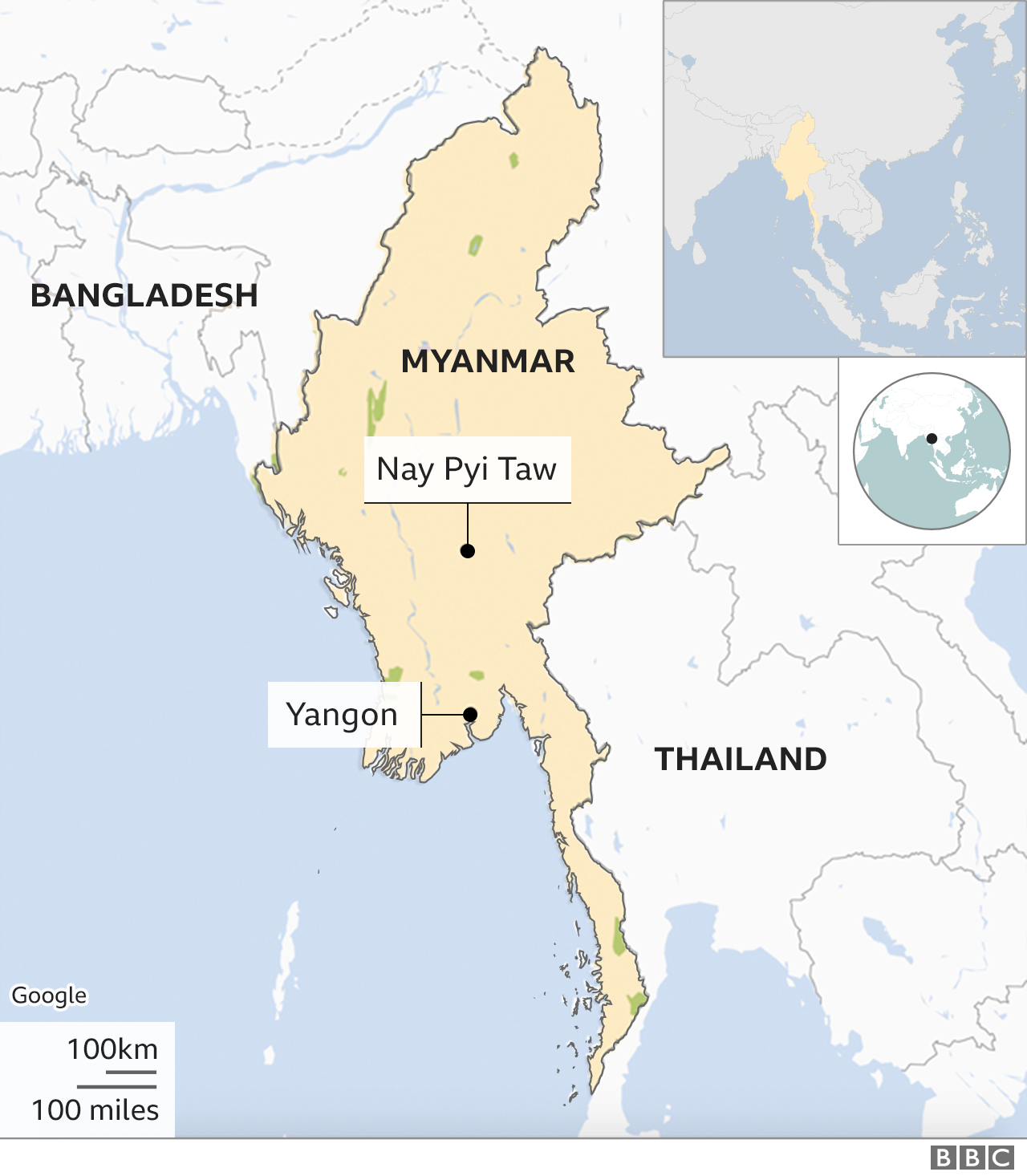


Have you been affected by recent events in Myanmar? You can share your experience by emailing haveyoursay@bbc.co.uk, external.
Please include a contact number if you are willing to speak to a BBC journalist. You can also get in touch in the following ways:
WhatsApp: +44 7756 165803
Tweet: @BBC_HaveYourSay, external
Please read our terms & conditions and privacy policy
If you are reading this page and can't see the form you will need to visit the mobile version of the BBC website to submit your question or comment or you can email us at HaveYourSay@bbc.co.uk, external. Please include your name, age and location with any submission.
Related topics
- Published2 February 2021
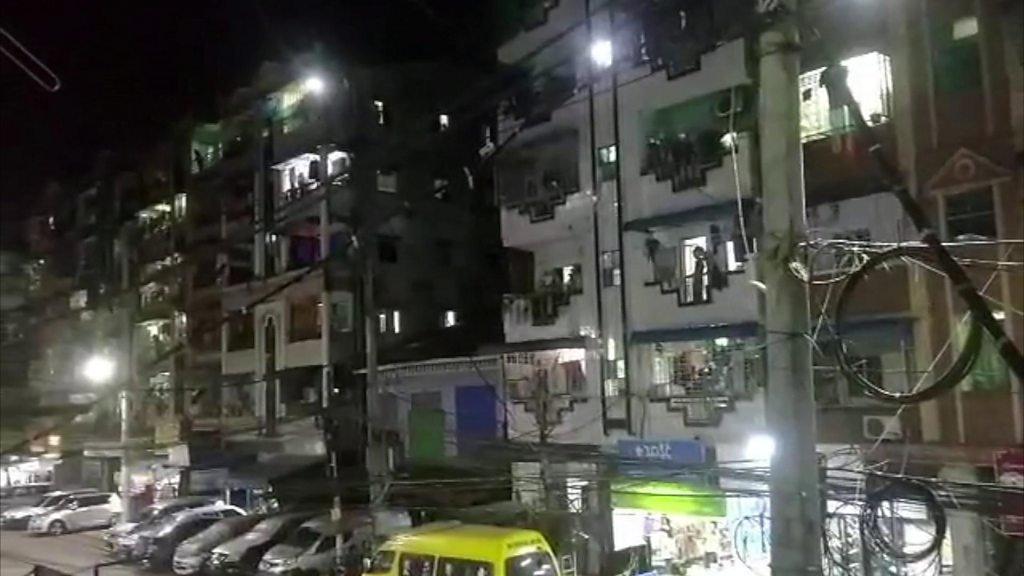
- Published25 July 2022
